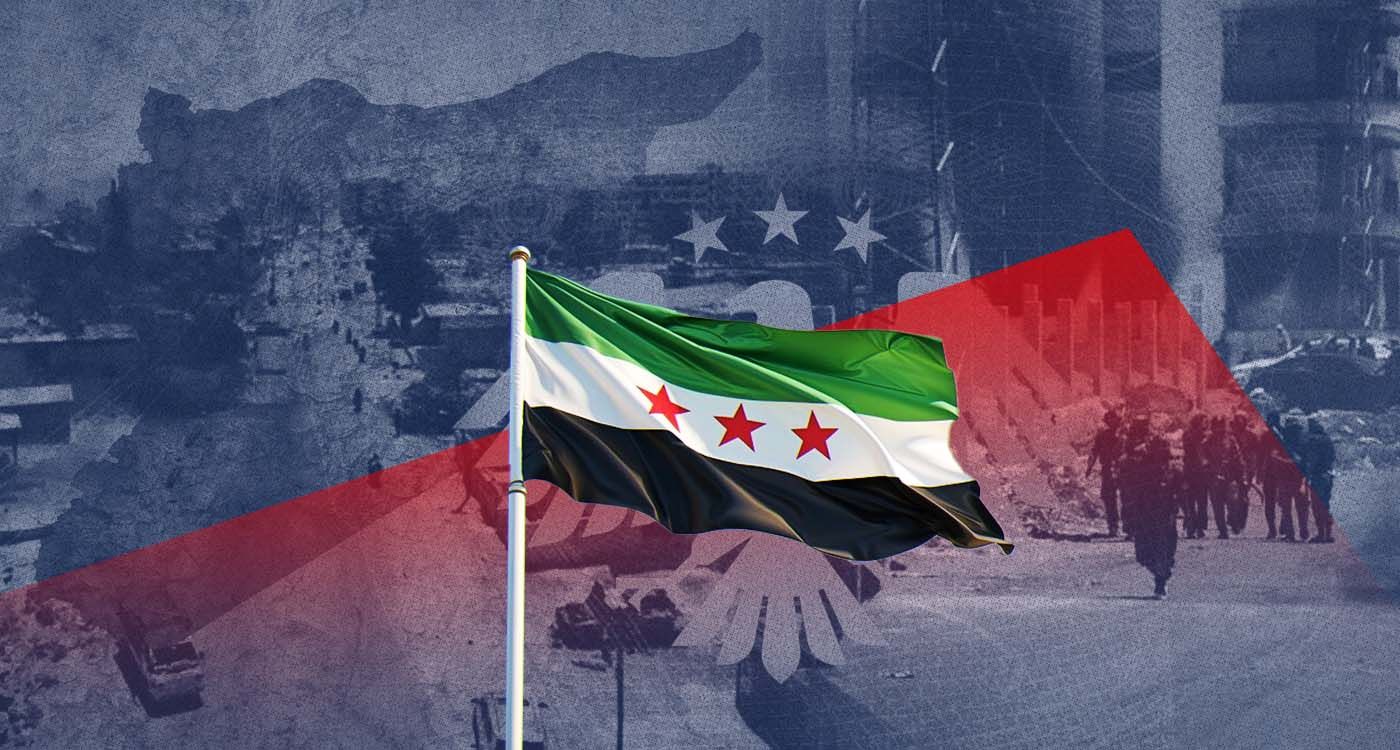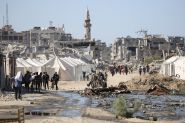- Home
- Middle East
- The Grammar of a Bungled Transition

©This is Beirut
The interpretation of political events can often lead to misunderstandings and confusion. It is crucial to establish clear communication and guidelines to navigate such complexities effectively. Without these measures, the potential for misinterpretation increases, which can exacerbate tensions and hinder progress. Therefore, fostering an environment of transparency and open dialogue becomes essential in bridging gaps and promoting understanding.
The dramatic events in Sweida are quite illustrative of the dismal records of Islamist transition in Syria. The abrupt downfall of the Assad regime was ambivalent, and nobody could have guessed what turn these events may take in the immediate future. The takeover of the HTS terrorist group with its dismal human rights records, leaves observers perplexed about the outcomes of this takeover and its incidence on the future of Syria.
The lessons of this transition were highly instructive insofar as the imponderables of political change in an uncharted terrain. The questions it begets are summarized as follows: There is no prescripted scenario in this context; actors can never claim an overall representation and are bound to engage other political and communal actors if they were to achieve an understanding; international mediations are critical at the preliminary stages if actors were to overcome the bitter legacies of long-haul grievances and conflicts; the grammar of conflict resolution is to be jointly drafted if negotiations were to sustain over time and yield tangible results. Success hinges on the willingness of all parties to listen actively and adapt their strategies in response to one another's concerns. Building trust and fostering open communication are essential components in transcending historical animosities and paving the way for a more collaborative future.
The meteoric takeover of the terrorist group was quite misleading since he thought that he was readily mandated to speak on behalf of all Syrians, whereas the differences were lingering behind the surface and the animosities were likely to be rekindled at any moment. To put it otherwise, no one has conceded legitimacy to this group and given it the right of representation. The international mediations were seeping insidiously into the emerging political scene because the incoming group had come to realize its inability to move beyond the state of prostration unless it tied itself to an international political dynamic that helped normalize its controversial political status and opened up the path to economic cooperation and developmental assistance.
The Saudi conduit turned out to be the most effective diplomatic channel, which opened up the lines of communication with the US and the EU. The lifting of sanctions has proven salvational since it allowed the group to address the issues of governance and public policy and overcome the bottlenecks of ideological politics and their stifling mental restrictions. Unfortunately, what this group has failed to understand is the intellectual and psychological framing of a successful political transition. This was too obvious when it started acting on the basis of a pre-granted political legitimacy, whereas reality is far beyond the delusions nurtured by groups that are ideologically hermetic and impermeable to realities that contradict their ideological worldview.
This group considered the diplomatic overtures secured by Saudi Arabia dispensed from internal dialogue and the need to reconcile with other religious denominations and political factions on the basis of an overlapping consensuses. The matter of fact is even worse because it was dismissive of the moral and political worth of its nemeses and counterparts. There is nothing unusual, because fundamentalist groups are by definition dismissive and condescending, let alone discriminatory. Whatever might be the issues at stake, they can hardly be addressed when the prerequisites of a working negotiation are initially missing.
It’s no hazard that the negotiations with the different factions have been bungled or never considered. That largely accounts for the prevalence of violence, which precluded the very possibility of a discursive approach to conflict resolution. Ahmad al-Sharaa and his group were still in a monologue that precluded any sort of partnership. They took over power as a terror group and never departed from the ideological, psychological and operational schemes that commanded their behavior. The very fact that the structuring of governance was dictated by their inner political considerations and division of labor reflects their inability to perform whatever conversions are needed to move from the terror group mindset to the one of a structured and law-based governance.
Their behavior betrays systemic inabilities and is far from being accidental. The failure to engage in an open national dialogue testified to the fact that ideological proclivities and biases are stifling. It’s no hazard that the egregious human rights violations and the pogroms against Alawites, Druze and Christians were alternating without the least interrogation about their fallouts on the overall national course, let alone the backlash effects and their devastating moral and strategic outcomes. The reason that accounts for this blindness is ascribed to well-entrenched ideological and mental dispositions tainted with moral arrogance and self-righteousness.
These repeated failures and inability to adjust to the norms of the international community and its behavioral standards question the relevance of the diplomatic endeavors trying to remedy the inconsistencies of a flawed political vision and its ravaging consequences. What worries most is the skewed approach to the emerging geopolitical realities generated by the Israeli counterinsurgency and its substantive modulations.
The politics of repression are not incidental or tangential to the unfolding strategic and political events; they reflect the inherent misreading of facts and distorted visions. Rather than engaging the other communal groups, the al-Sharaa political style has proven to be condescending, duplicitous and inherently dismissive. What he failed to perceive is the reluctance of these ethno-religious groups to adjust to the mandates of systemic oppression and the openings offered by the Israeli counterinsurgency and its empowering overtones and underlying subtexts.
US diplomacy cannot adhere to the false premises of an unconditional rehabilitation of this group, acknowledge its usurped representation and claim a successful political vindication. The lifting of sanctions was made conditional upon the premise of reconciliation politics, whereas the political facts on the ground testify to the contrary. Short substantive reforms, violence is regaining momentum and the chances of peace are diminishing by the day.
Read more




Comments